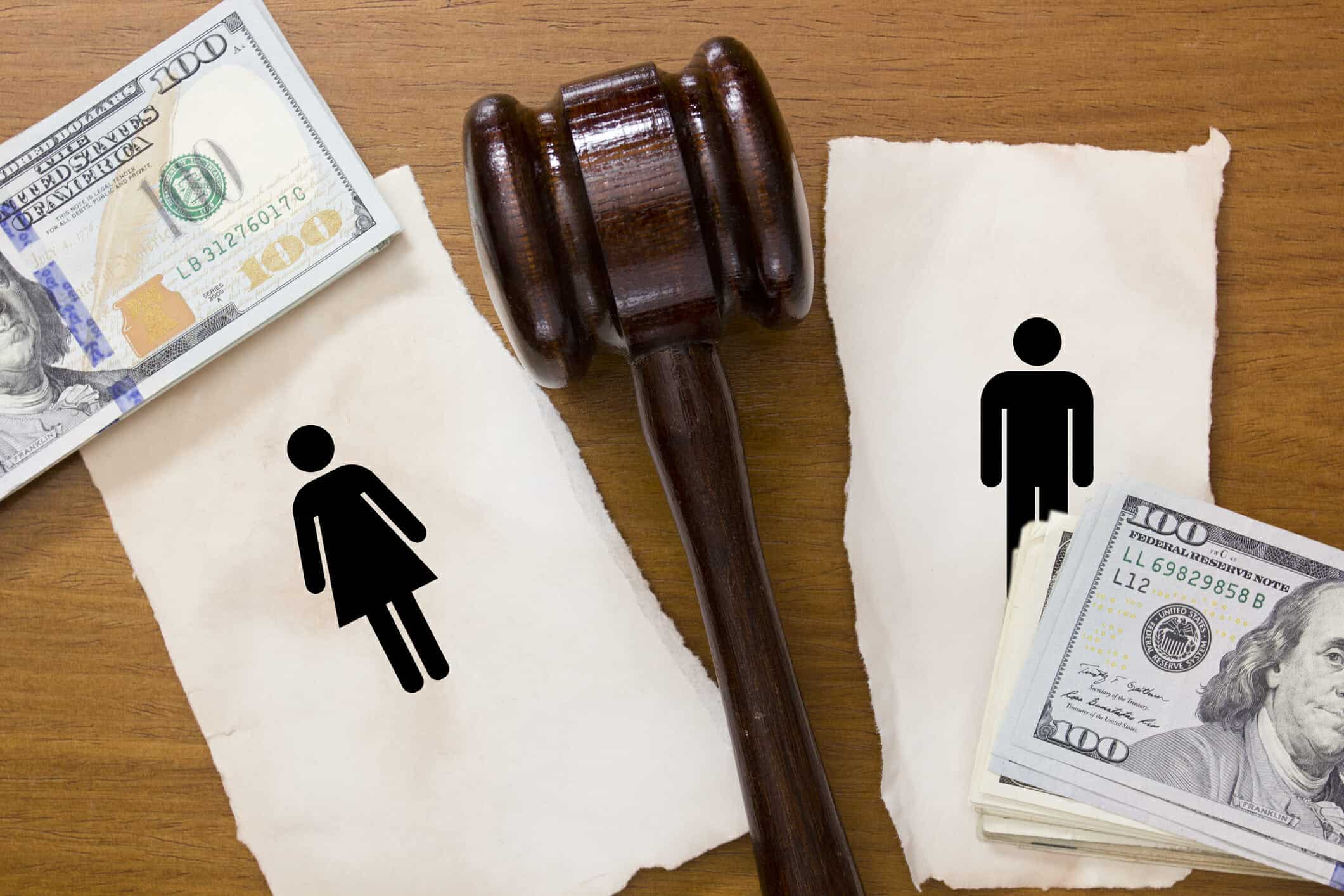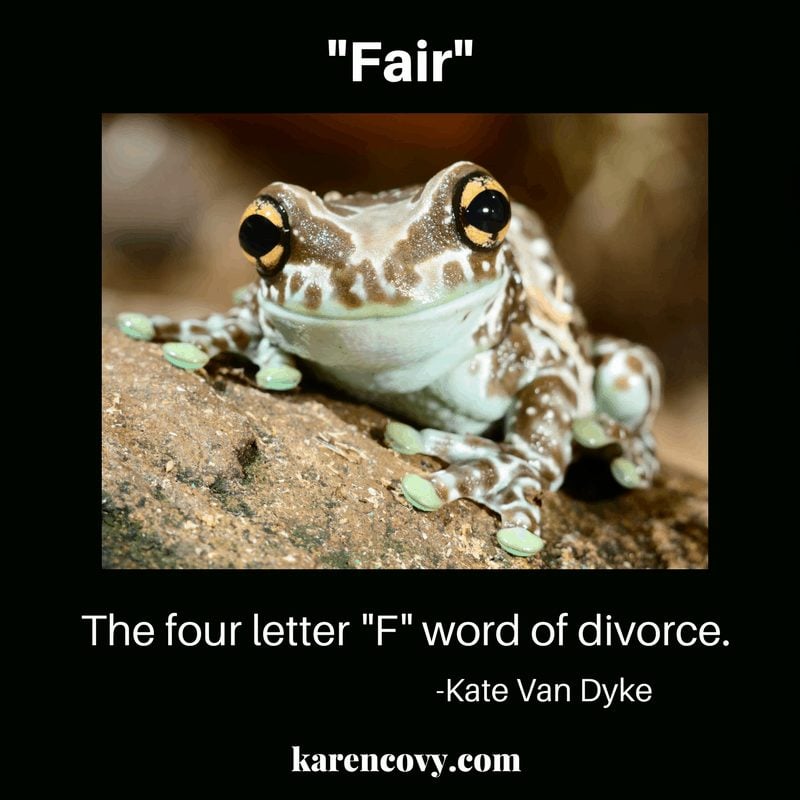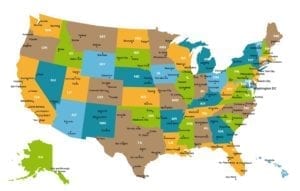The way that property is divided in a divorce depends upon where you live. All states in the U.S. divide property in divorce in one of two ways: equitably or equally. The states that divide property equitably are called "equitable distribution states." Those that divide property equally (50/50) are community property states.
Because divorce law is state-specific, the way that property gets divided in divorce will vary from state to state. But, in general, most states divide property in divorce in very similar ways.
Marital Property v. Non-Marital Property
For divorce purposes, there are two kinds of property: marital/community property and non-marital/non-community property. Marital/community property gets divided as part of the divorce. Non-marital/non-community property does not. It’s deemed to be “separate property” and remains with whoever has owned it all along.
Marital property is loosely defined as everything you and your spouse owned or acquired while you were married EXCEPT:
- Gifts you received during your marriage;
- Money or assets you inherited; and
- Property that's covered by a prenuptial agreement.
Gifts you received and money you inherited during your marriage are generally considered to be your separate property. (NOTE: If you and your spouse receive a gift or inheritance jointly, that's MARITAL property. It doesn't matter that the source of your inheritance was YOUR great Aunt Mabel. If she gave a gift to both of you, it's marital property.)
Property that you had before you were married is generally considered to be separate property. Anything that your prenuptial agreement identified as separate property is also separate property.
Separate property technically does NOT get divided in a divorce. However, in equitable distribution states, the amount of separate property one spouse has can affect how much marital property that spouse receives in a divorce. (For example, it may not be “equitable” to divide marital property 50/50 if one spouse has separate property worth $1,000,000 and the other has nothing.)
However, it’s important to note that “separate property” can be transformed into “marital property” under certain circumstances.
How Your Non-Marital/Non-Community Property Can Become Marital/Community Property.
Separate property (i.e. non-marital or non-community property) can "lose its separateness" in two main ways:
- If it is "commingled" with marital property, or
- If you make a gift to your marriage.
If you mix your separate property with marital property, you “commingle” it. Once you commingle property, it's often hard to know how much of the property is marital and how much is separate. If you can't figure it out (or you can't PROVE what is separate), ALL of the property is generally deemed to be marital property. That's true even if the property was originally YOUR gift or inheritance.
How Commingled Property Works in Divorce
Let's say you inherit money from your great Aunt Mabel. You put that money into a separate bank account in just your name. At that point, your inheritance is still your separate property. But then your spouse convinces you that you should invest your inheritance so that it grows. So you transfer your inheritance into a joint investment account that you already have with your spouse. That's where things start to get fuzzy.
Because your joint investment account is in both names and already had marital money in it, it's a marital asset. When you added Aunt Mabel's money to that marital asset you created a "mixed" asset. In other words, that account now has two kinds of money in it: marital money and separate money.
At first, you will easily be able to see how much of your investment account came from your inheritance. But, over time, the amount of money you have in that account will change. Some investments will grow. Others may not. Certain investments will earn more money than others. Tracking how much of your account came from your inheritance, and how much came from marital contributions gets harder every day.
To make things even more complicated, if you and your spouse later deposit more marital money into the investment account, you will confuse things even more. If you withdraw money from your investment account from time to time, things get even fuzzier. That's because money is money. There's no way of saying whether the money you withdrew (for whatever reason) came from your inheritance or from your marital investments.
Making "a Gift" to Your Marriage
Another way your separate money can become marital property is if you use it to "make a gift" to your marriage.
You can "make a gift" to your marriage without meaning to do so.
Using the example above, when you transferred your inheritance from your separate account into a joint investment account, you may have made a gift to your marriage. (Surprise!) It doesn't matter whether you intended to do that or not.
You can also make a gift to the marriage by using your inheritance for marital purposes.

For example, let's say you want to keep your Aunt Mabel's money separate. So you never put it into a joint account. But then, you and your spouse run short of money. So you use money from your inheritance account to pay your bills. Guess what? You may have just made a gift to your marriage!
Even if you pay yourself back, you're making that payment with marital money. So now, on top of making a gift to the marriage, you may have commingled the money in your inheritance account!
Of course, most people don't ever even try to pay themselves back. As a practical matter, once you've spent your inheritance money, it's gone. (You don't get a "credit" for that money when you divorce!)
The bottom line is that, if you want your separate property to stay separate, you've got to keep it that way! Of course, if you have a prenuptial agreement, everything may be different.
The Effect of Pre-Nuptial Agreements
No matter where you live, if you and your spouse have a valid prenuptial agreement, that agreement can change how you divide property in a divorce.
Having a prenuptial agreement is the best way to keep your separate property separate.
In a prenup, you and your fiancé will disclose all of the property you own before you're married. You will decide in advance what will happen to that property if you divorce. You can also decide in advance what will happen to any property you receive during your marriage by gift or inheritance.
Whatever you agree to in your prenup will generally determine how you divide property in your divorce.
But what if you don't have a prenup? How is your property divided in divorce then? The answer depends on whether you live in an equitabl distribution or a community property state.
Equitable Distribution States
In equitable distribution states, marital property is divided “equitably" when you divorce. Dividing property “equitably” means that you divide it "fairly." Dividing property "fairly" does not necessarily mean that it's divided equally. That's because "fair," like beauty, is often in the eye of the beholder.
If your spouse was a spender and you were a saver, it may not feel "fair" to divide your property 50/50. The same thing may be true if you earned more during your marriage than your spouse did. Unfortunately, what "feels fair" to you may be very different than what's legally considered to be fair.
In order to determine what's legally “fair,” a court will normally look at the big picture. A judge will look at all of your property, both marital and separate. While a judge may consider how much you and your spouse each contributed to that property, s/he may look at other things too.
A judge will consider how much money you and your spouse will get in your divorce overall. S/he will look at both of your incomes and expenses. The judge may consider who will be taking care of the kids after your divorce. Then, based on all of those facts and circumstances, a judge will decide how to "equitably" divide your property.
An “equitable distribution” of your marital property may be a 50/50 split. Or it may be a 60/40 split. Or it may be something else.
Normally, your non-marital property will stay separate. It's not typically divided in your divorce. But not every divorce is typical.
Unless you have a valid prenup, you can't be sure what will happen when you divorce.
Community Property States
Most of the states in the U.S. are equitable distribution states. Nine states and Puerto Rico are community property states. Those nine states are:
- Arizona,
- California,
- Idaho,
- Louisiana,
- Nevada,
- New Mexico,
- Texas,
- Washington, and
- Wisconsin.
In community property states, all property that you earn or acquire during your marriage is deemed to be community property. Property that you own before you're married is your separate property. Property that you acquire by gift or inheritance is also your separate property. (If you commingle that property, or "make a gift" to your marriage, it can become community property.)
When you divorce, your community property is generally divided 50/50. Again, however, there are exceptions.
One of those exceptions is having a valid prenup. Prenuptial agreements can change how property is divided in divorce in community property states, just as they can in equitable distribution states.
How Property is Divided in Divorce
The way you divide property in a divorce depends on a lot of things.
First, it depends on where you live, i.e. whether you're in an equitable distribution or a community property state.
It depends on whether your property is marital or non-marital.
It also depends on how you treated that property during your marriage. Did you mix it with marital property? Or, did you keep it separate?
Because dividing property can be complicated no matter where you live, it's best to talk with a good divorce attorney in your area. S/he can answer whatever questions you may have about how to divide property in your divorce.





